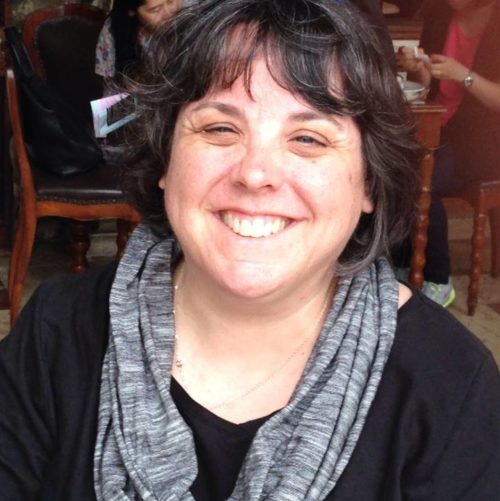 It’s almost graduation day at the college where I teach. Classes are just about over, exams are looming, and thoughts of summer plans are providing at least some small measure of mental encouragement for those of us on the faculty to keep tackling the mountain of student work that needs grading.
It’s almost graduation day at the college where I teach. Classes are just about over, exams are looming, and thoughts of summer plans are providing at least some small measure of mental encouragement for those of us on the faculty to keep tackling the mountain of student work that needs grading.
Despite the craziness of the season, I actually really love graduation. I like volunteering at the senior picnic and seeing my students with their delighted families. I like meeting the parents and siblings, cousins and aunts and grandparents, and I like seeing their reaction when they find out that I’m “that” professor (and that I look more normal than they had imagined). I like putting on my gaudy “Husky Purple” robe (go, University of Washington!) and my funky Ye Olde English Hogwarts tam, even if, as I often joke, I most resemble the grape from the Fruit of the Loom gang in my get-up. I like assembling with my colleagues, all snazzily dressed up as well, and marching in to the strains of “Pomp and Circumstance,” even if I do feel badly every year for the band, forced to repeat the song 87 times. It is, no doubt, a mark of my rapidly accelerating middle age, but I have to admit I get sentimental and a little verklempt every year.
And there’s one other thing. We’re still of a size as an institution that we call out the names of each graduate. It takes a while to get through them all and, though I know it is not a widely shared sentiment, this roll call is one of my favorite parts of the whole ceremony. Most years I know a good number of students—and as I hear their names and see them walk across the fieldhouse floor to accept our president’s congratulations, I see them again as they were in my classes. It’s not all sunshine and puppies, of course: though I often warmly remember their talent or intellect or personality, sometimes I am also bemused that they made it through to graduation at all.
But as I hear the litany of names, I hear not just a reminder of the stories of those that I know. Clearly, in a class of 1000 people, many students are strangers to me. No, it is the very names themselves that move me. I am fascinated by how each name carries with it histories and genealogies and the chronicles of many generations. I imagine how each name—no matter how it sounds in my ears—was a name that parents wondered about and deliberated over, practiced fondly saying to each other aloud, perhaps intended with it something that honored folks who had come before. That great Adamic privilege of naming, of imbuing another being with a hope and a future. Each name, to paraphrase Whitman, then, “contains multitudes”—the community of family and friends and church and teachers and so many others who surround that student as he or she journeys onward. The recognition of that, the understanding of the way we are part of a much bigger story than ourselves, is moving indeed.
I thought of the graduation ritual the other day when I was at church. I typically sit further towards the back, but because I was one of the readers in the service, I had to sit in the front row. When it came time for communion, which we took by intinction, I realized I could hear the pastors administering the elements. What particularly got my attention was that as each person approached to receive the bread, the minister would say his or her name:
“Sally, the body of Christ broken for you.”
“Anne, the body of Christ broken for you.”
“Henry, the body of Christ broken for you.”
And on and on through the many people in our large congregation. In the course of that communion service, I heard the names of the entire church—and heard again and again, too, about Christ’s death for each of them. I was surprisingly affected by what seemed to me to be a wonderfully holy moment, a reminder that even if our parents took no care with our names, we are still absolutely beloved of the God who died for us by name.

